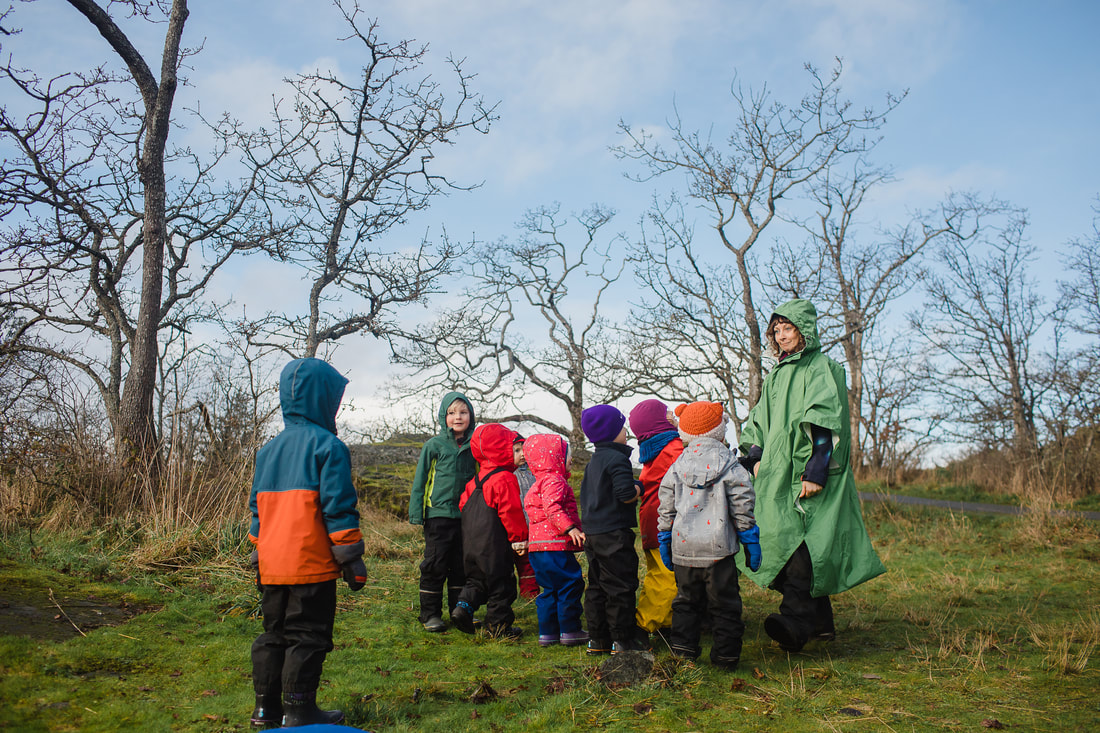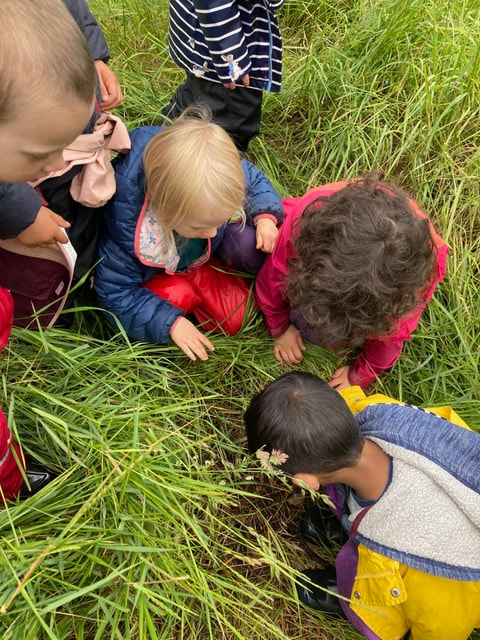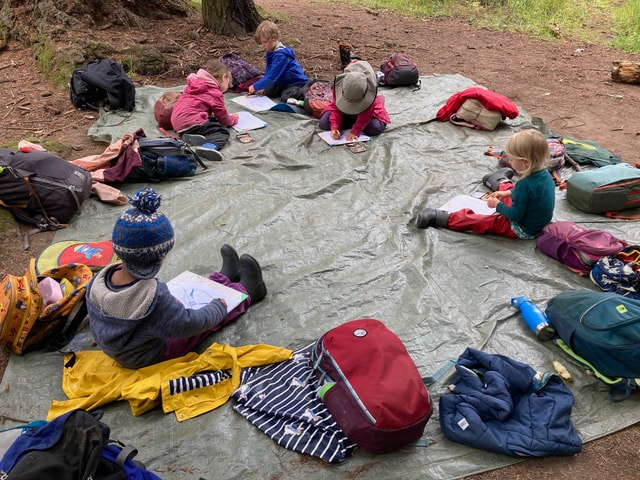Nature Education
a way to experience the world
|
Forest and Nature School (FNS) is an educational approach that has existed worldwide since the late 1950s, with over ten thousand Forest School programs in the UK alone. FNS is known by many different names (i.e. Nature Kindergarten, Outdoor School, Waldkindergarten, etc.) and can take many different forms. Some programs are offered to students half a day per week, for example, whereas other schools have embraced the FNS approach on a more full time basis, resulting in students spending the majority of their days outdoors. Similarly, FNS can take place in many different climates and settings - urban or near-urban parks, natural spaces adjacent to or on school grounds,
natural playgrounds or outdoor classrooms, forests, meadows, or beaches - and with varying age groups. The activities that happen in FNS also vary depending on the season, climate, landscape, animals that have visited the night before, trees that have blown down in the wind, the kinds of provocations elicited by the educator, various tools and loose parts for building and creating, the children who are in attendance, how long the group has been formed, and, most importantly, what interests the child. Sometimes children will work independently, finding solace in their own world and creations and pondering. Other times children will work collaboratively to create something, problem solve, support one another, dream of a bigger and better world. FNS is frequently described as a ‘magical’ thing to witness, as it’s often a microcosm of collaboration, communication, trust building, and a working model of consensus building. Despite all of this variation, all FNS programs adhere to the following two principles, which also distinguish them from other outdoor and environmental education programs: regular and repeated access to a natural space, as well as child-directed, emergent and inquiry-based learning. The defining feature of this type of nature-based education program is that children are provided with opportunities to build an ongoing relationship with the land, to a dedicated educator, to one another, and to themselves. For more information on Nature Education, please visit: https://childnature.ca/ |
Here is a song we love that sums it up!
|
Proudly powered by Weebly


